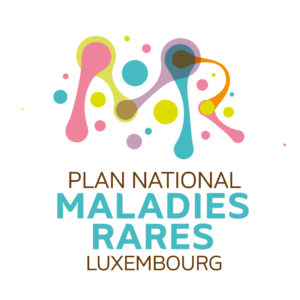
National Plan
More than a plan: a milestoneLuxembourg is currently awaiting the implementation its second National Plan for Rare Diseases. The first National Plan for Rare Diseases presented to the public on 7 May 2018 by then Luxembourg’s Minister of Health, Lydia Mutsch. It is the result of a collaboration between 70 experts from various sectors related to rare diseases, including health, psychology, science, education, research and patient associations. This first National Plan for Rare Diseases covered the period from 2018 – 2023.
The overall objective of the plan is to better meet the needs and expectations of patients and their families and to better guide, coordinate and structure actions in the field of rare diseases. Five strategic axes have been developed to meet this objective:
- Governance and overall management of the plan (general axis),
- Improvement of the healthcare system (Axis A),
- Facilitating access to information on rare diseases, through the creation of a national platform (Axis B),
- Better recognition of the specificity of rare diseases and promotion of research (Axis C),
- Meeting the psychological and social needs of patients and their families (Axis D).
The implementation of a National Plan for Rare Diseases is critical to guarantee equal access to diagnostics, therapy, care and research for all individuals living with a rare disease.

At the end of 2019, the “Infoline Maladies Rares” was launched as one of the first initiatives of the National Plan for Rare Diseases in Luxembourg. It is a first line of support and provider of information for individuals affected by a rare disease and their families as well as healthcare professionals.
In January 2022 the “Guide d’orientation luxembourgeois pour les personnes vivant avec une maladie rare” was published. It provides information on the services and aids that are available within different areas (e.g. health care, social security, financial aid, schooling etc) and guides people through the different procedures.
Learn more about the Infoline.
Learn more about the National Plan for Rare Disease.

